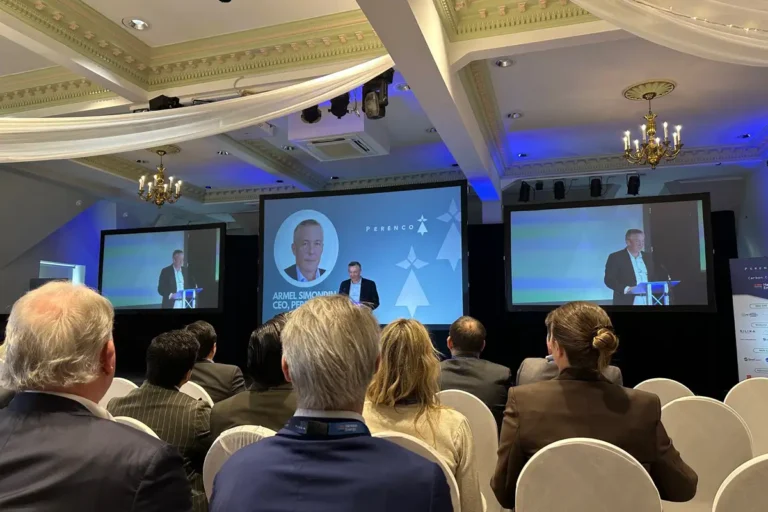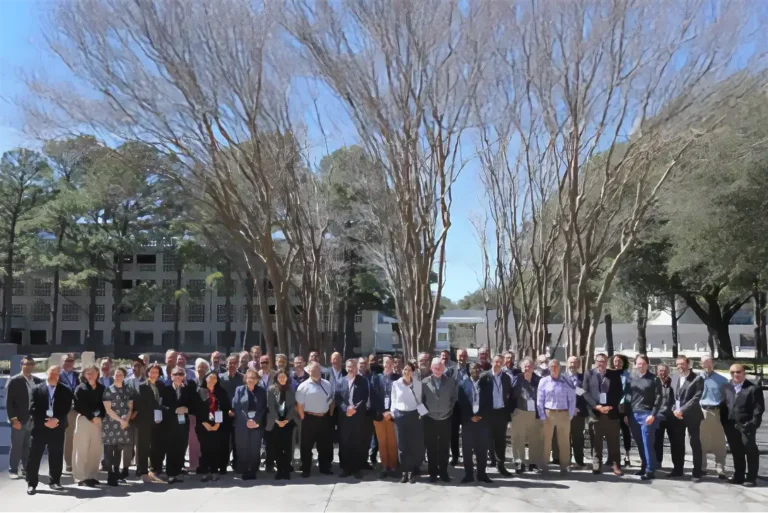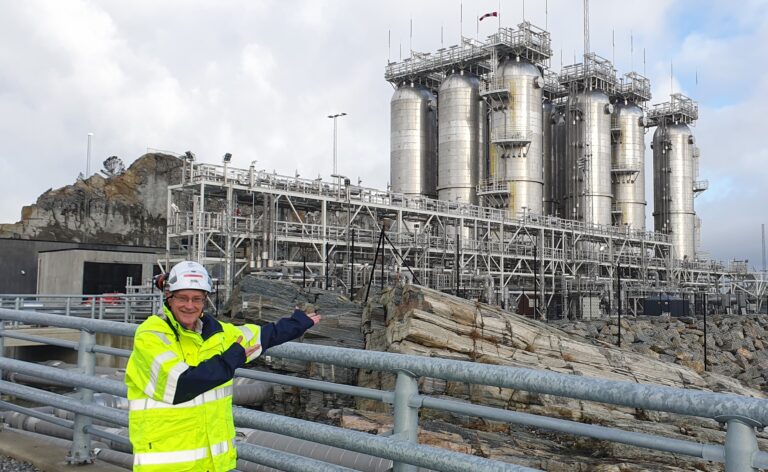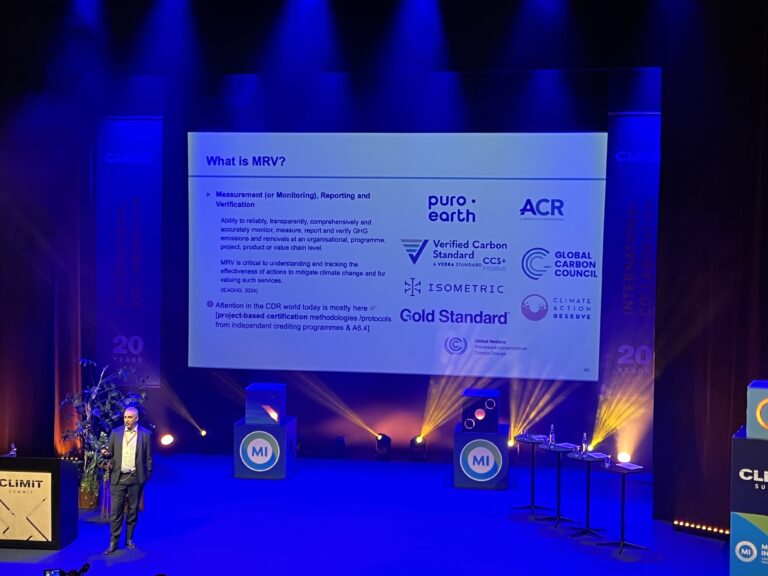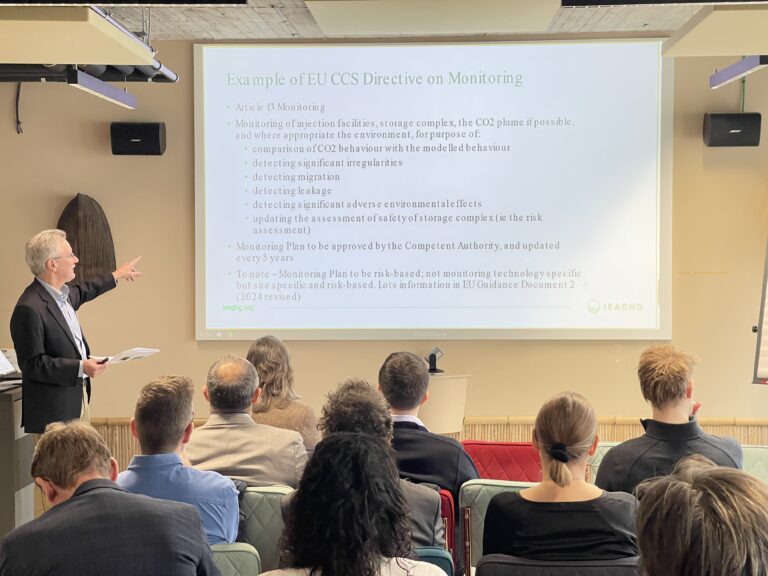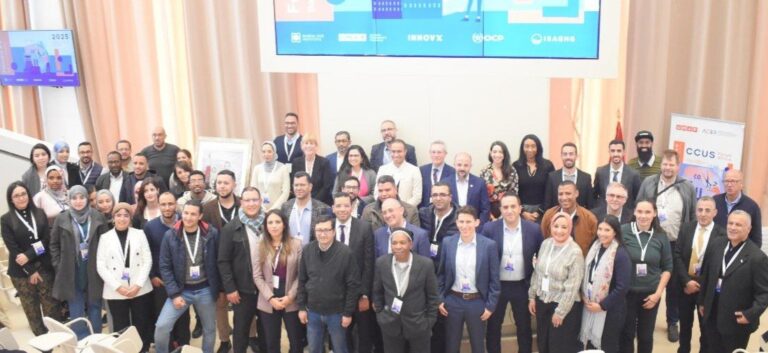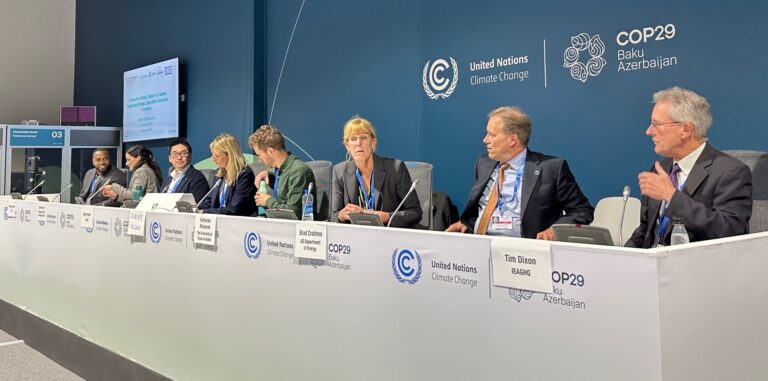
IEAGHG presents perspective on CCUS at the USDOE Workshop on Representing CCUS in Energy Models
17 March 2020

Last week I attended the USDOE Workshop on Representing CCUS at College Park, Maryland, 9 – 11 March 2020. Organised by the US Department of Energy, this was the third workshop bringing energy modellers together with policymakers and economists, plus technology experts covering capture, utilisation and storage. Workshops are held every 18 months or so, with previous workshops in April 2017 and October 2018, both in the Washington DC area. As for the earlier workshops, around 30 delegates attended.
In identifying the potential functions that individual technologies may play in combatting climate change, energy modellers play an important role in determining our energy future. The outputs from their work not only informs governments around the world when developing energy and economic policy, but also informs the broader energy community – including government, industry and the finance sector – on allocation of R&D spend and on support for technology deployment at scale.
By and large, energy models are used to quantify the interactions and trade-offs between societal demands for energy, economic and environmental services, using an integrated systems approach. They typically use the energy, the Earth, the water and the climate systems, and the economy – although not all models include all these systems. Their interactions are constrained by a set of socio-economic, demographic, technological and environmental assumptions. To be effective, the models must be sufficiently robust from an engineering, scientific and economic perspective. Given the different approaches and assumptions employed by the various models and modellers, it should not be surprising that outputs also differ – each energy model will have its strengths and weaknesses. Nevertheless, it should be expected that outputs would be variations on a theme, explainable in terms of the particular assumptions and approaches taken, rather than be completely at odds.
However, it is axiomatic that, no matter how good the model, the outputs can only be as good as the data used to populate the model, i.e. good model + bad data → bad results. Data used to populate energy models cover a wide range of technologies and, given outputs are required to project the roles of these technologies well into the future – usually to some point or points between 2030 and 2100 – information on the changing performance and costs of the technologies over time must also be incorporated in the model.
Global models are even more complex, with the performance and costs of technologies, both present and future, varying, sometimes markedly, with geographical location. And, for CCUS, there is the added complexity of source-sink matching, where CO2 emissions from power and industry may or may not be within reasonable reach of (or in the same country as or even on the same continent as) a suitable storage site. Consequently, populating the models is no trivial task. By their very nature, future performance and costs are unknown quantities. Estimates of costs may be made, e.g. by using parameters such as the learning rate, which may be defined as the fractional reduction in cost for each doubling of cumulative capacity deployed.
If they (and any third parties) are to have confidence in their results, these are the daily challenges modellers must contend with. Not only to ensure the models themselves are robust but also that the data used to populate them are also as robust as they can be. Given modellers cannot be expert in every technology, technology-specific experts can play an important role in providing the best information available on performance and costs or in directing them to a reputable source of such information. This is essentially the rationale for the series of workshops hosted by the DOE, i.e. to facilitate dialogue between modellers and technology experts and for a mutual understanding to be reached on the constraints and challenges facing each party.
While, in this case, the spotlight was on the United States’ energy sector and the modellers represented US institutions, the workshop was an excellent example of good practice that other regions would be well advised to emulate. There are, of course, instances where modellers meet modellers and, very often, where technology experts will meet with, say, policymakers, economists and financial experts but, forums for modellers and others within the energy community to meet and exchange views in an instructive setting are decidedly less commonplace.
That the workshop series focused on CCUS is also to be welcomed. CCUS is less a technology than a family of technologies that cover capture, transport, utilisation and storage. As such it is possibly more difficult to identify ‘best’ data or ‘most appropriate’ data than it is for other energy technologies.
An international presence at the workshop was realised in the form of IEAGHG, Japan’s Institute of Applied Energy and Norway’s Equinor. Representing IEAGHG, I presented “An IEAGHG Perspective on CCUS”. This included several examples of learnings from IEAGHG studies that would be of direct relevance to modellers. Examples ranged from the essential role of CCUS in combatting climate change to the techno-economics of markedly reducing CO2 emissions from capture, to the dearth of information on costs relating to storage and the difficulties relating to source-sink matching.
Particularly noteworthy in the context of this workshop is a recent IEAGHG publication; 2019-05 CCS in Energy and Climate Scenarios. The purpose of the study, published in May 2019, was to provide a transparent approach to understanding results from energy models and, in particular, the role of carbon capture and storage. Please contact Tom Billcliff to request a copy of this study.

Other articles you might be interested in
Get the latest CCS news and insights
Get essential news and updates from the CCS sector and the IEAGHG by email.
Can’t find what you are looking for?
Whatever you would like to know, our dedicated team of experts is here to help you. Just drop us an email and we will get back to you as soon as we can.
Contact Us NowOther articles you might be interested in
Get the latest CCS news and insights
Get essential news and updates from the CCS sector and the IEAGHG by email.
Can't find what you are looking for?
Whatever you would like to know, our dedicated team of experts is here to help you. Just drop us an email and we will get back to you as soon as we can.
Contact Us Now

